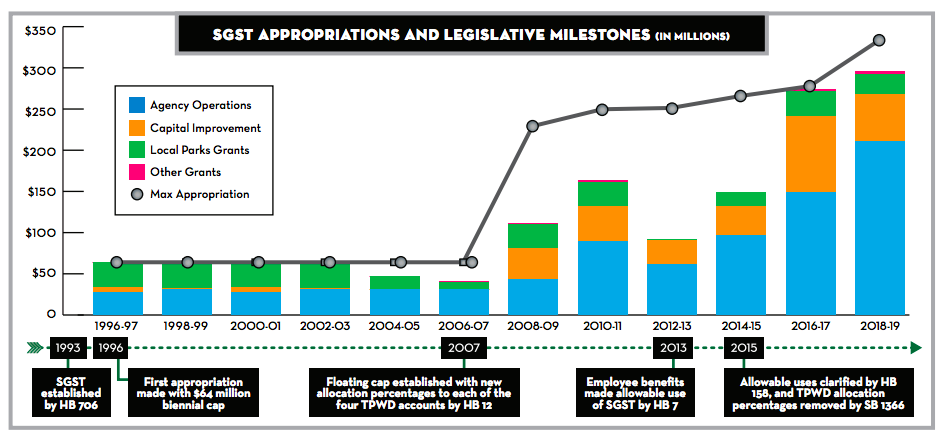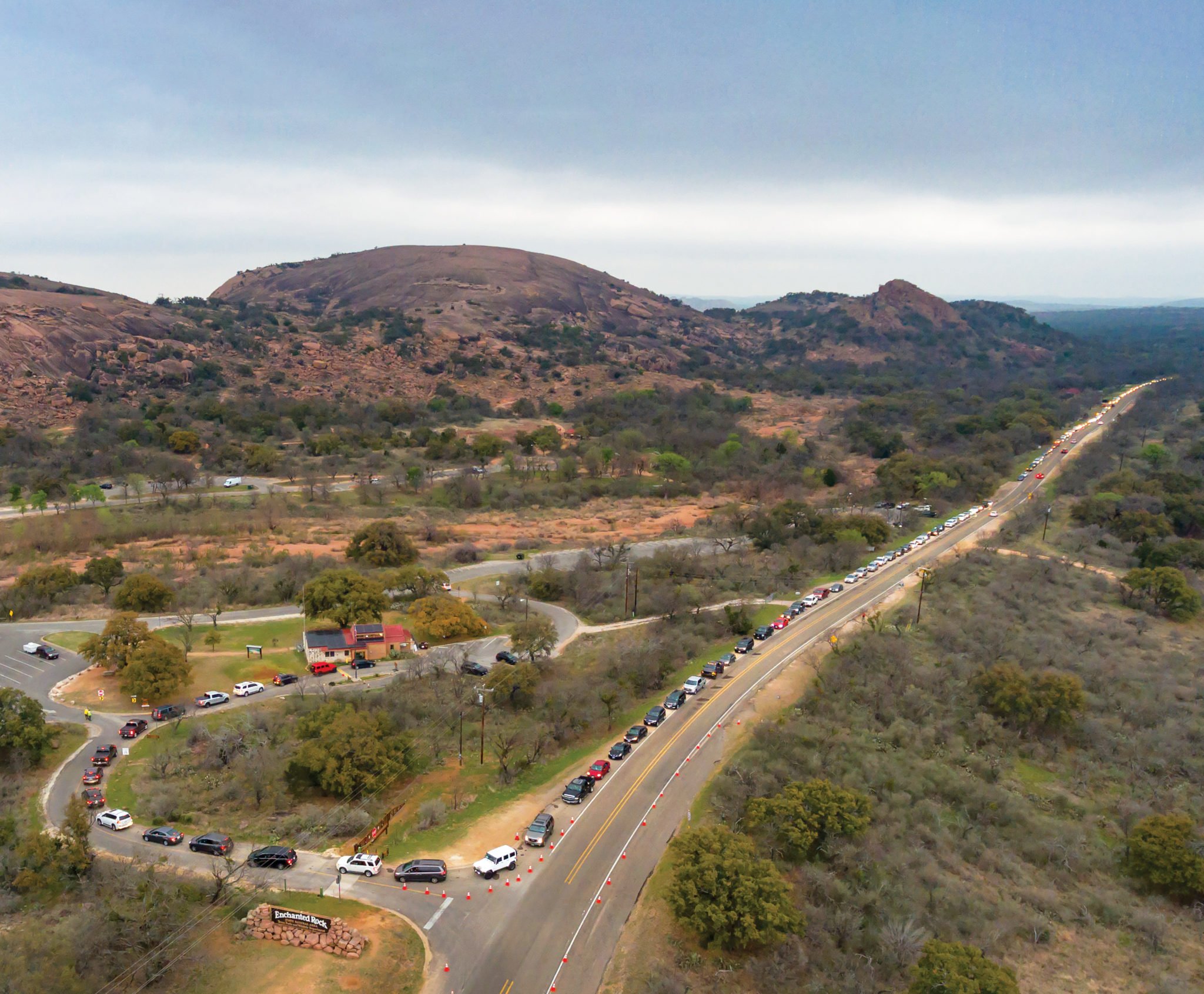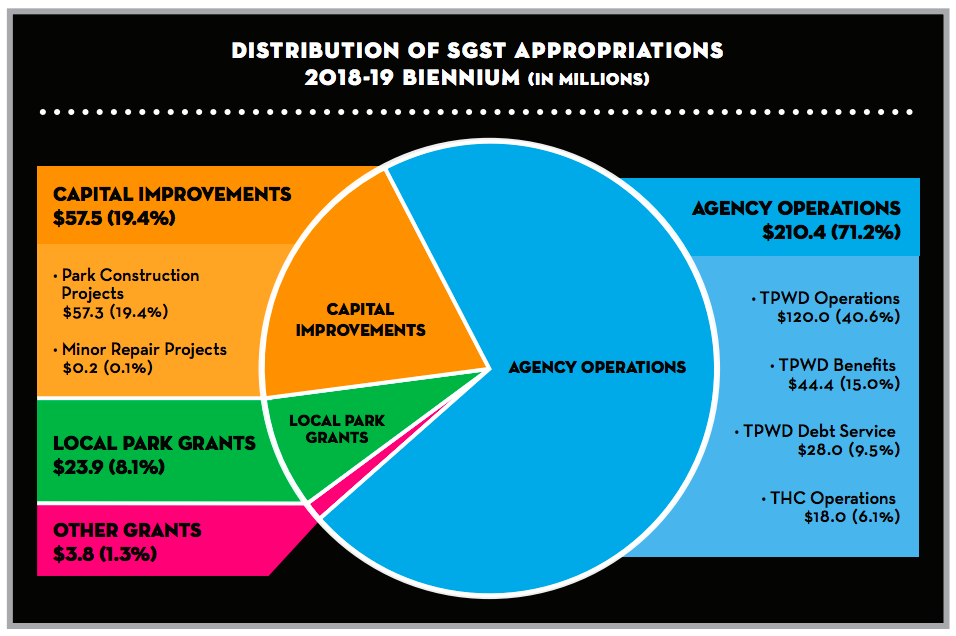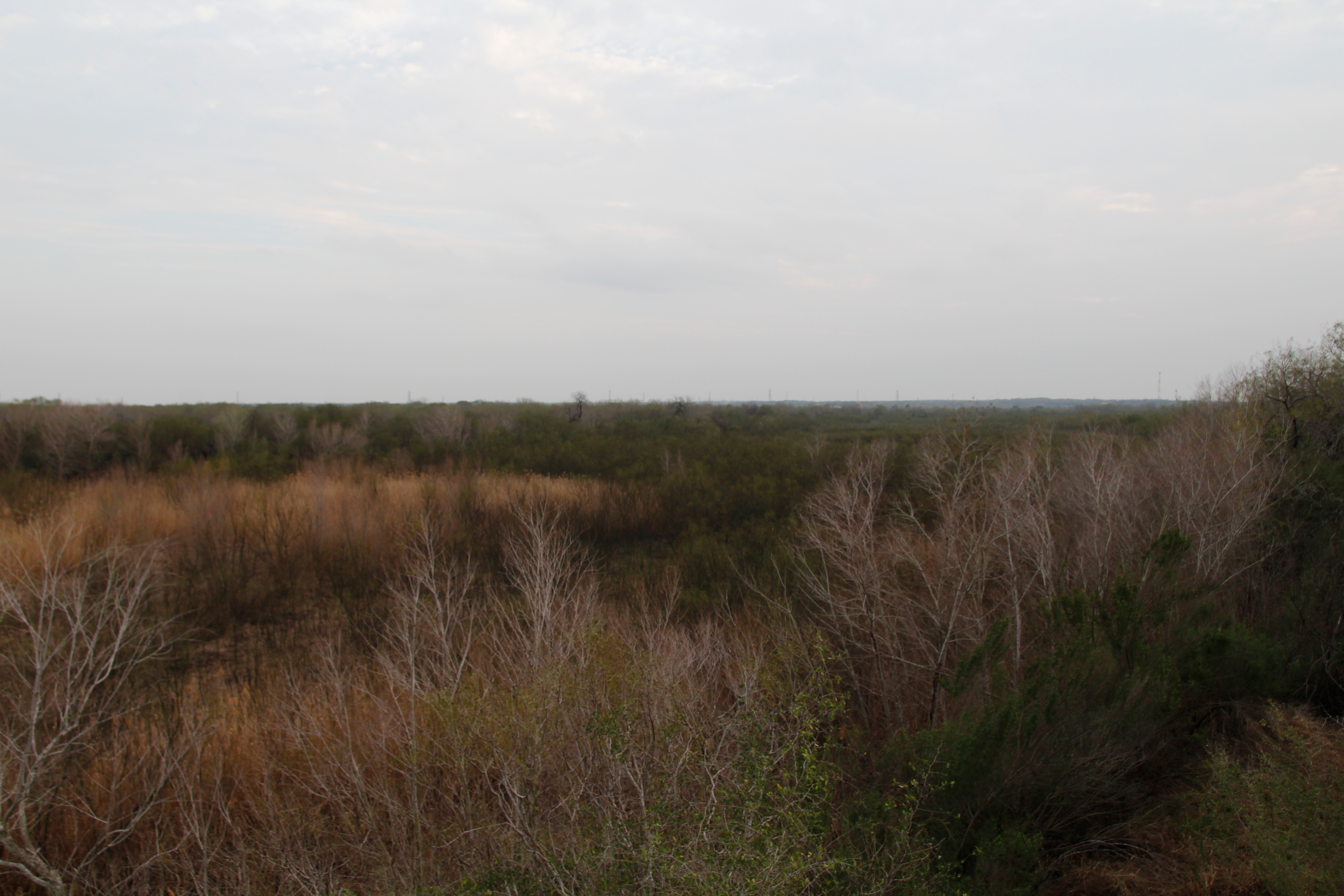Texas state parks have been a convenient piggy bank for the Legislature whenever money was short elsewhere, but this session they got their due. Lawmakers put more funding than ever into state parks, and additionally are giving voters a chance to approve a constitutional amendment this November to ensure a long-term source.
The amendment, passed by more than two-thirds of the House and Senate and signed by Governor Greg Abbott this weekend, is basically a fulfillment of funding that was promised in 1993. That year, lawmakers dedicated a portion of revenue from the sales tax on sporting goods to fund state parks — 94 percent of the revenue was meant for parks and the remaining 6 percent to the state’s 22 historic sites. Since then, though, legislators have consistently appropriated far less than parks’ full share, moving the money around to other parts of the budget and leaving some of the most beautiful and popular places in the state woefully underfunded. Until 2007, state parks’ slice of the sporting goods tax was capped at $32 million. Parks have received less than half of the dedicated revenue since 1993.

The new constitutional amendment, which a majority of voters must approve this November, would guarantee that parks and historic sites get their share into the future. Ultimately, it’s a matter of catching up with intent from 1993.
In addition to the constitutional amendment, lawmakers ponied up funds — the full $322 million from the sporting goods tax revenue earmarked for state parks — that will be appropriated regardless of the November election. That’s about 10 times what parks were allotted in 2007, and marks the third consecutive session that parks got their full share owed under the law.
The success for state parks this session is about as good as it gets, according to George Bristol, the founder of the Texas Coalition for Conservation and former chair of the Texas State Parks Advisory Committee and Audubon Texas. Bristol has been lobbying the Legislature for the past nine sessions.

Advocates hope the Lege’s newfound appreciation for wide open spaces helps address issues caused by record visitor numbers (nearly 10 million in fiscal year 2017). Advance online reservations are just about the only assurance of getting in to the most popular parks during busy periods.
“We need more parks, and more parks close to our major metropolitan areas,” Bristol said.
The unplugging of the budgetary logjam will allow for the development of Palo Pinto Mountains State Park, located west of Fort Worth. Lawmakers approved $12.5 million in funding for Palo Pinto, along with $10 million from TxDOT to build roads to the park and another $10 million in matching funds to be raised by the Texas Parks & Wildlife Foundation. Other large, 10,000-acre-plus tracts in the system, including prime Hill Country and coastal habitat, are lined up behind Palo Pinto Mountains waiting to be developed into state parks.
What happened this year that made the difference?
A rosy revenue estimate from the comptroller at the beginning of the session didn’t hurt. It was a lubricant for school finance reform and other spending measures that have been on the chopping block in past years.

Public pressure to improve parks, many of which are on the verge of falling apart, helped, too.
“More and more House members had been called out by their constituents about their particular state park — the bathrooms didn’t work, the automobile lines were too long. So there was some consensus to fix it, and fix it permanently so we don’t get this grief every two years,” Bristol said.
He also pointed to the leadership of Senator Lois Kolkhorst, R-Brenham, and Representative John Cyrier, R-Lockhart, the sponsors of the legislation in their respective chambers. Support from Texas Parks and Wildlife commissioners, House Speaker Dennis Bonnen and Lieutenant Governor Dan Patrick was also key, he said.
“We had to have two-thirds of the vote of the House and Senate to get a constitutional amendment on the ballot, and we got it walking and riding,” Bristol said. “… There was no opposition. Everybody signed on and made it work.”

Joseph Fitzsimons, former chair of the Texas Parks and Wildlife Commission and founder of the Texas Coalition for State Parks, also pushed the effort this session. He described the constitutional dedication as “transformative” for state and local parks. “It’s a logical nexus between taxation and public benefit — what a concept!” he said. “All it took was 25 years of perseverance by park advocates.”
Updating woefully outdated park facilities will take time. “$800 million in deferred maintenance can’t be addressed all at once,” Bristol said. “There aren’t enough design engineers and technical people to do it. But the Legislature has recognized nearly every state agency is way behind in maintenance funding.”
Now all eyes turn to voters in November. Bristol is raising money for the constitutional amendment election, utilizing a coalition of 74 organizations that he says represent more than 1 million Texans.
“We’re making up for 30 years of neglect. But we’ve got these tools now to get started and do something meaningful, sustainable and substantial,” he said.







